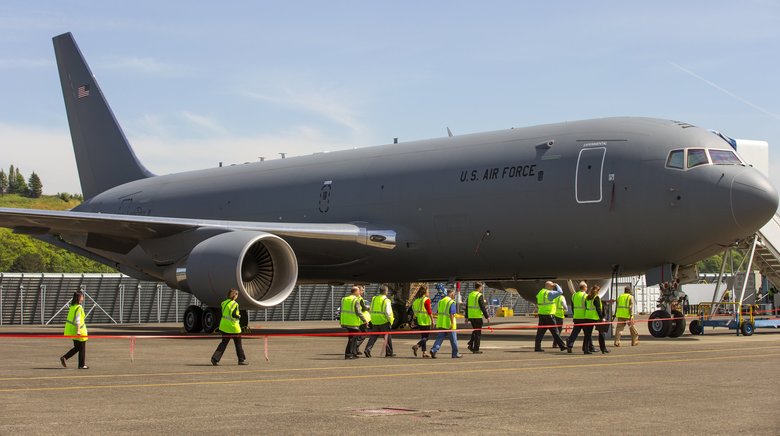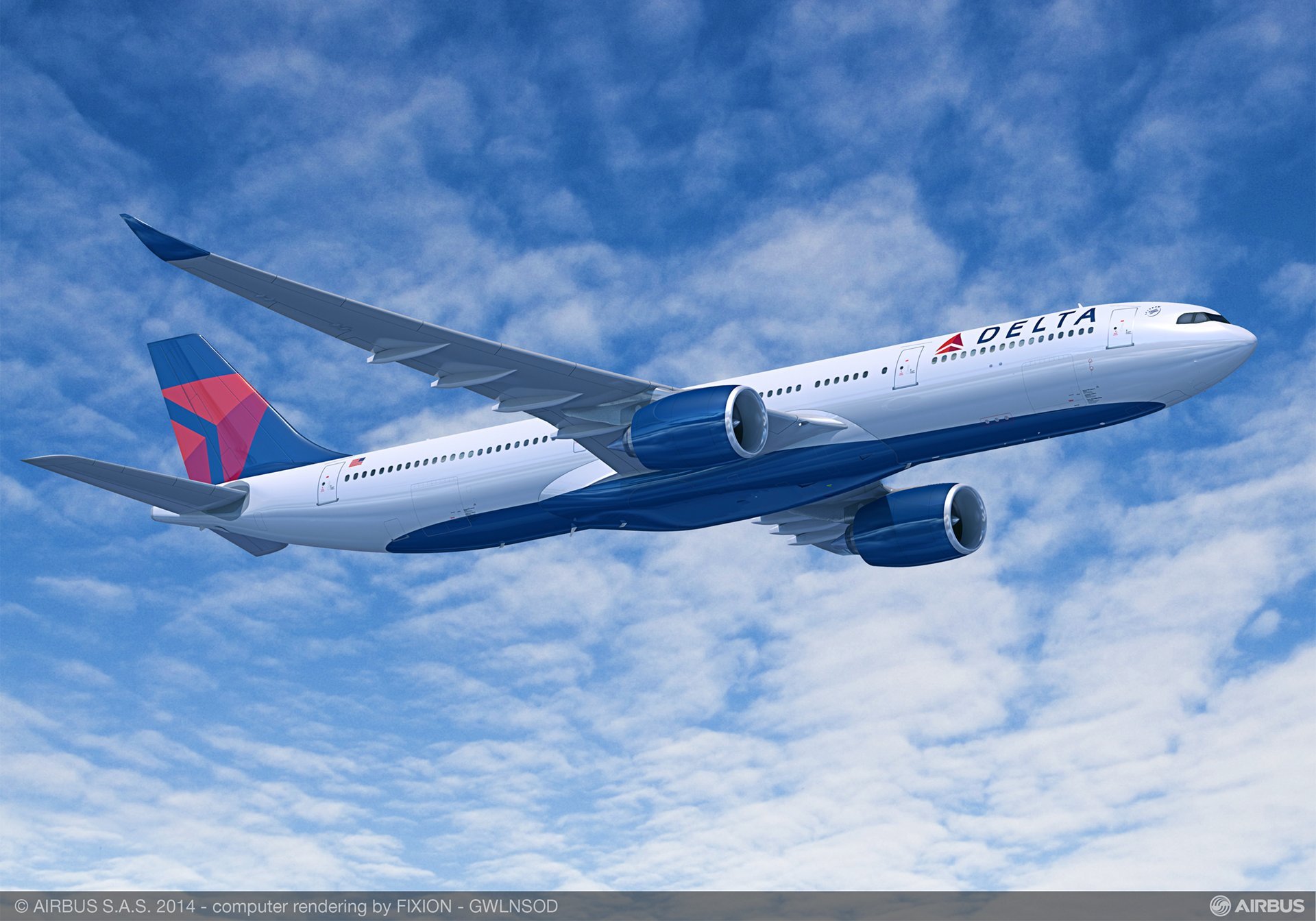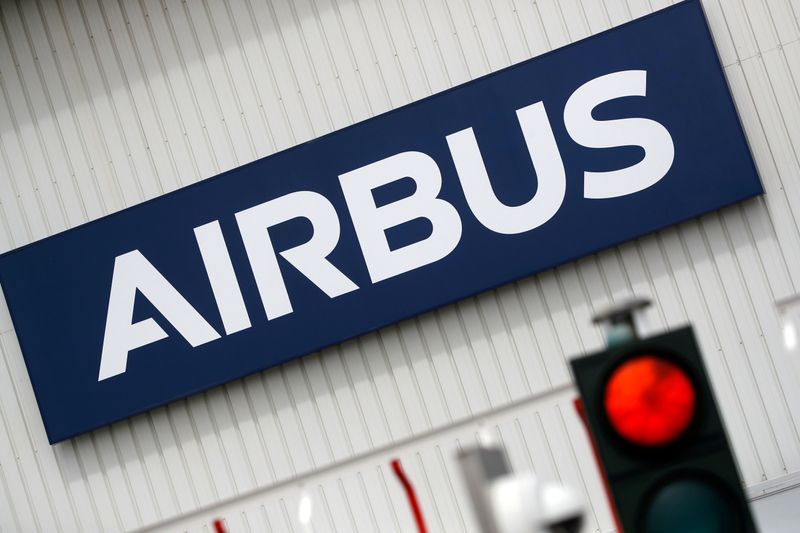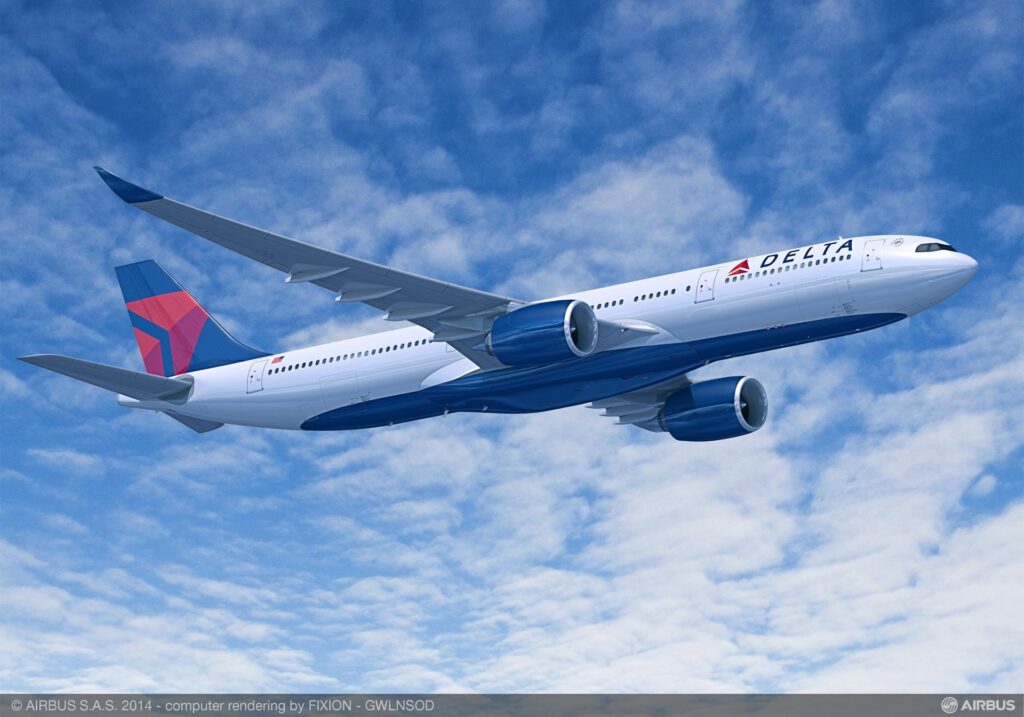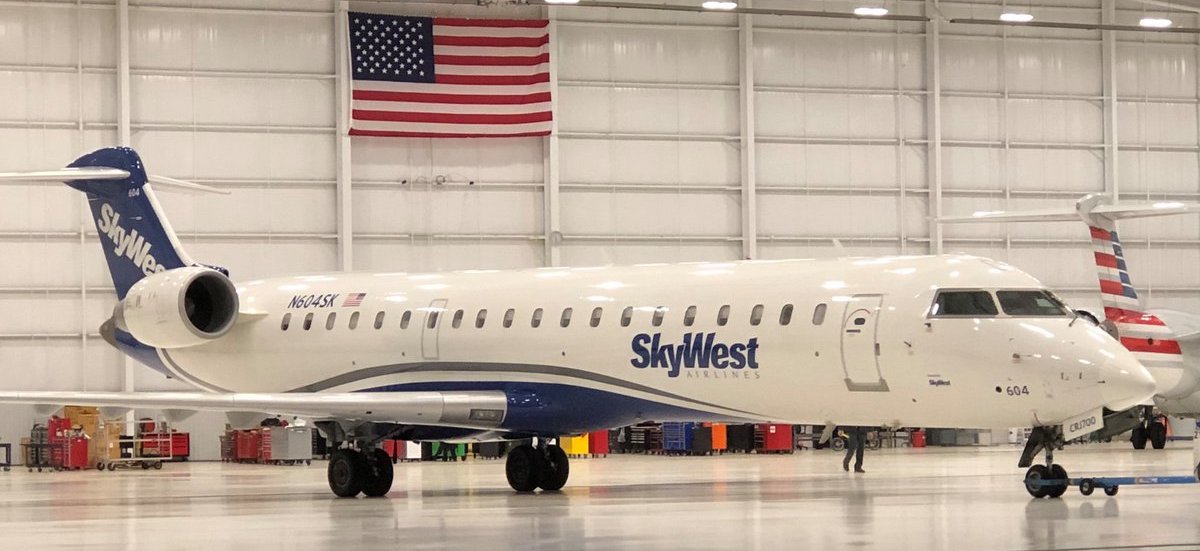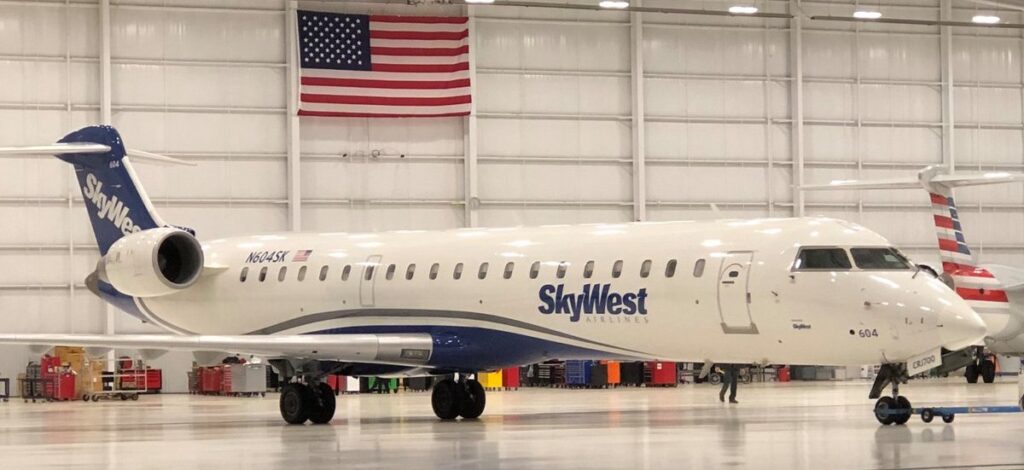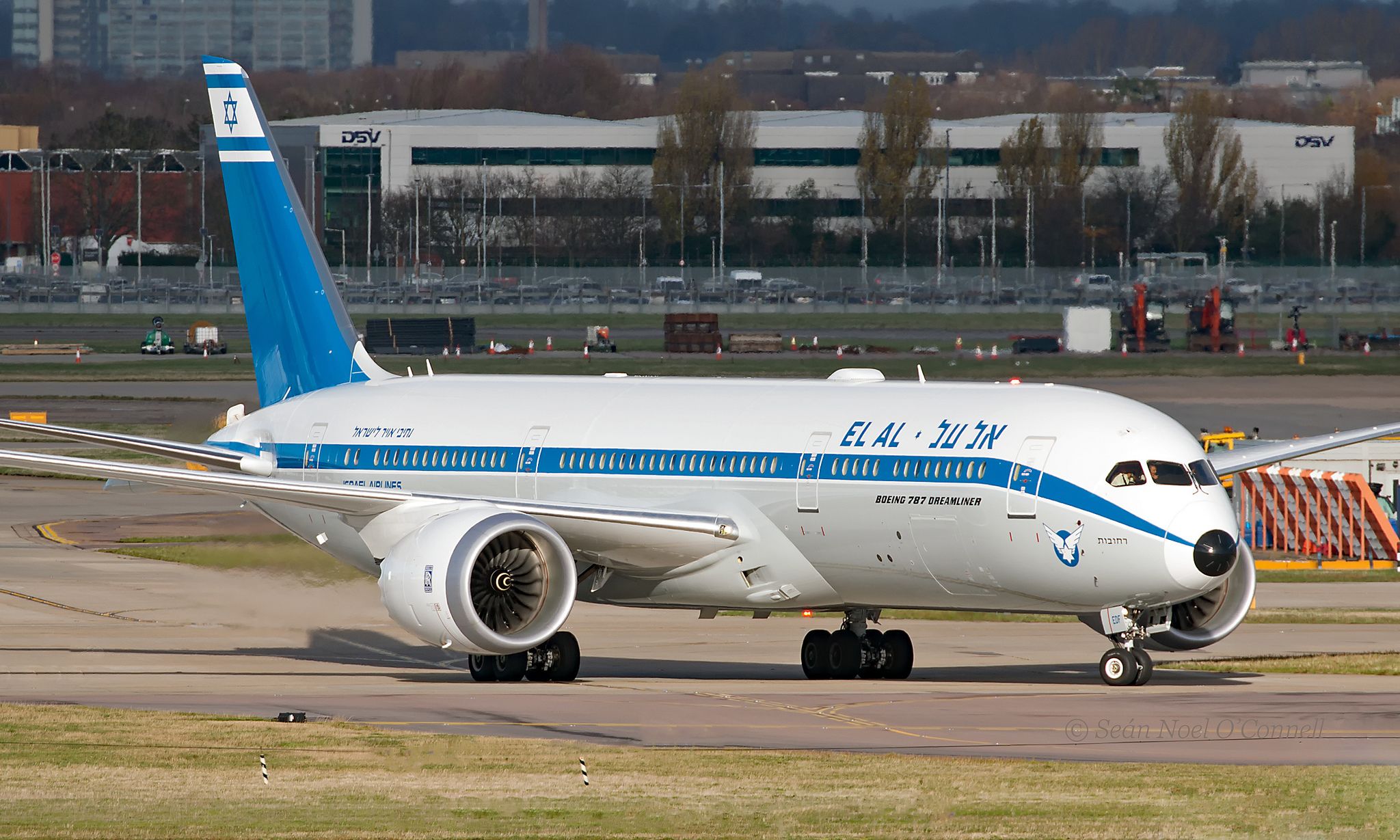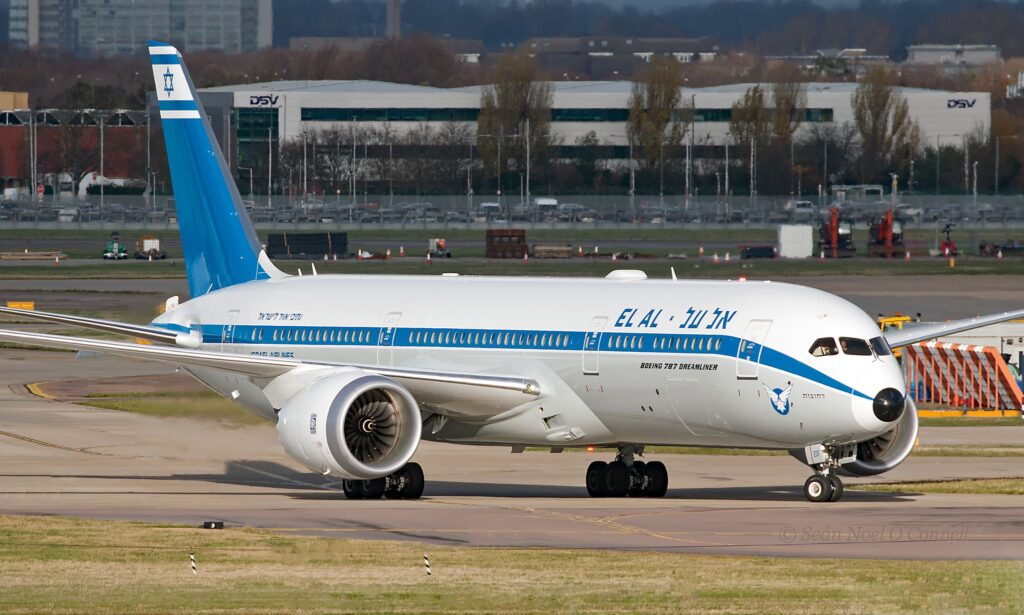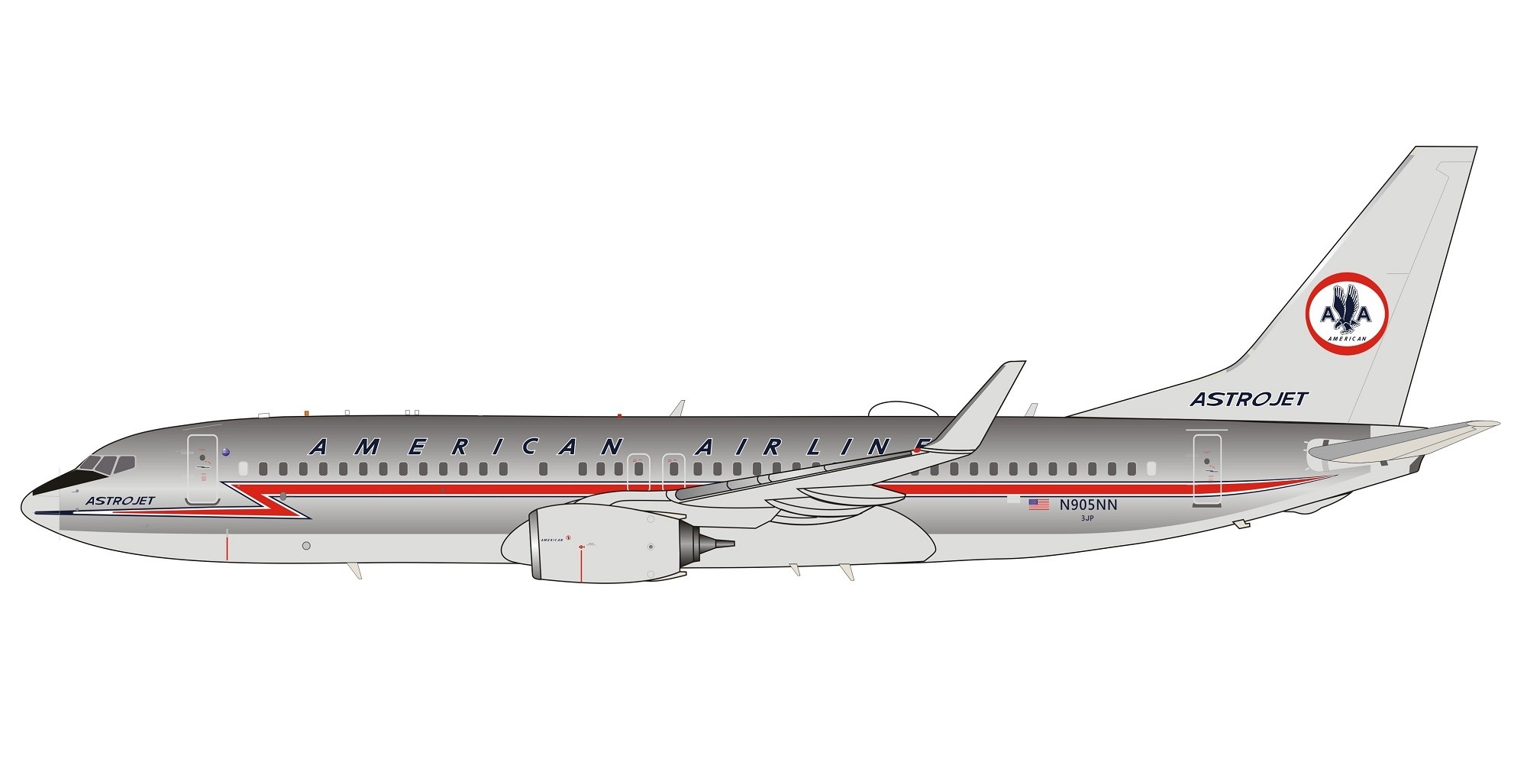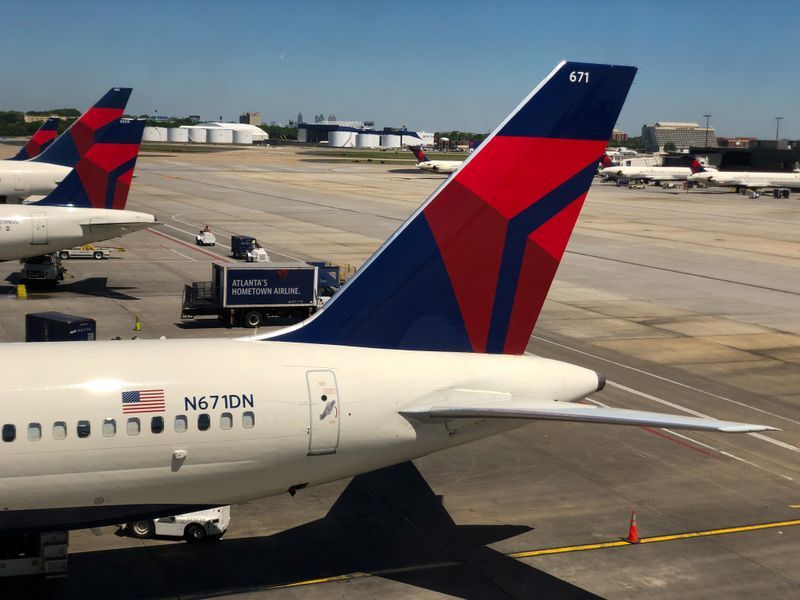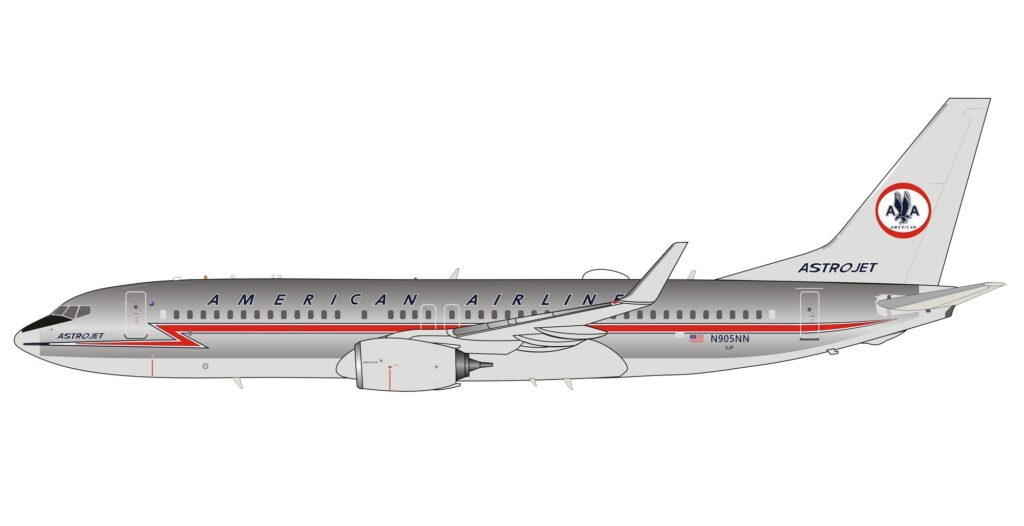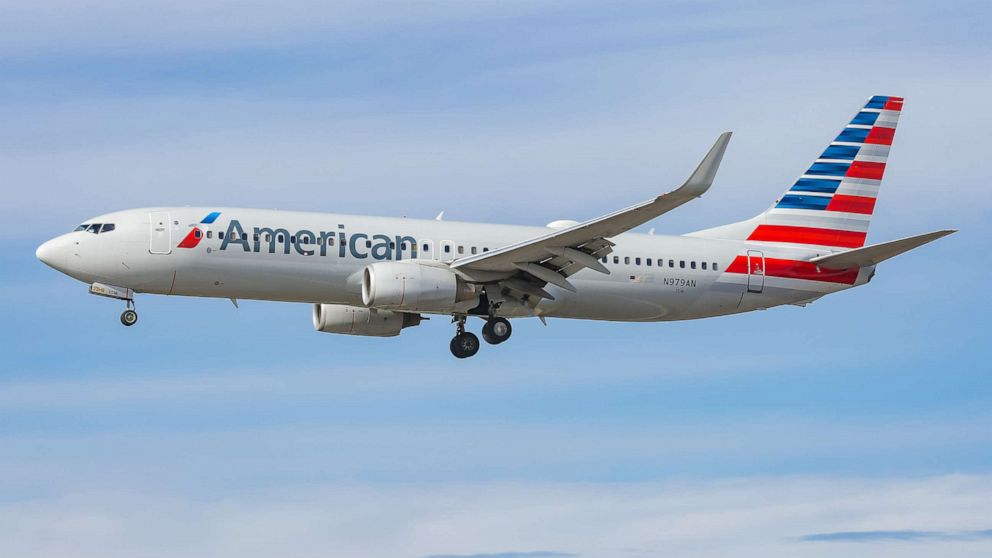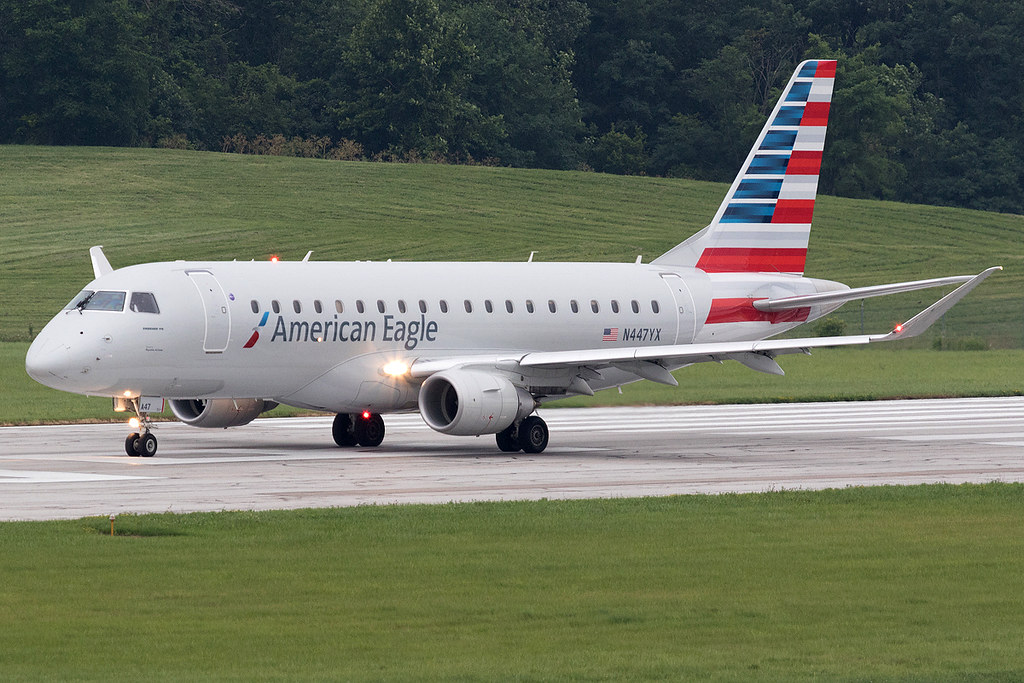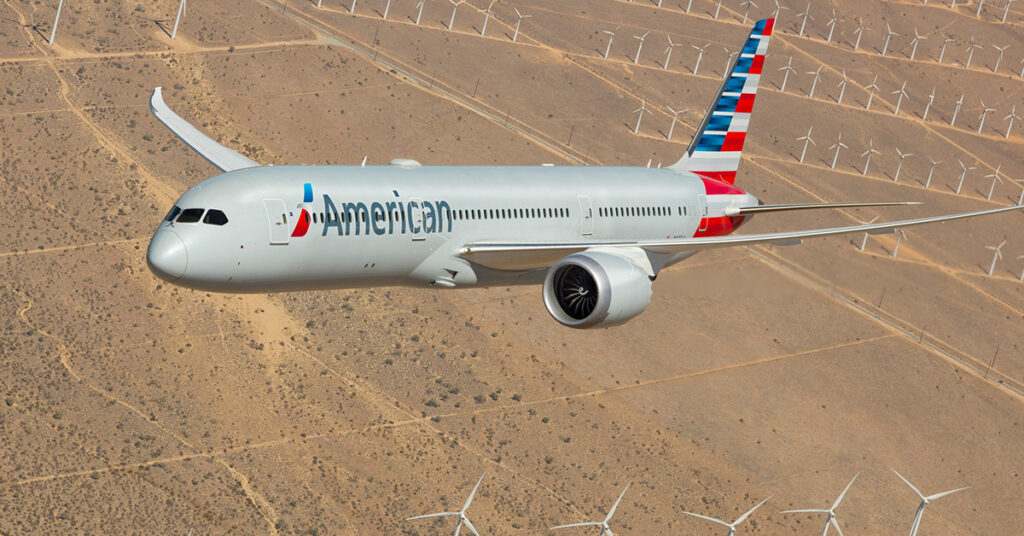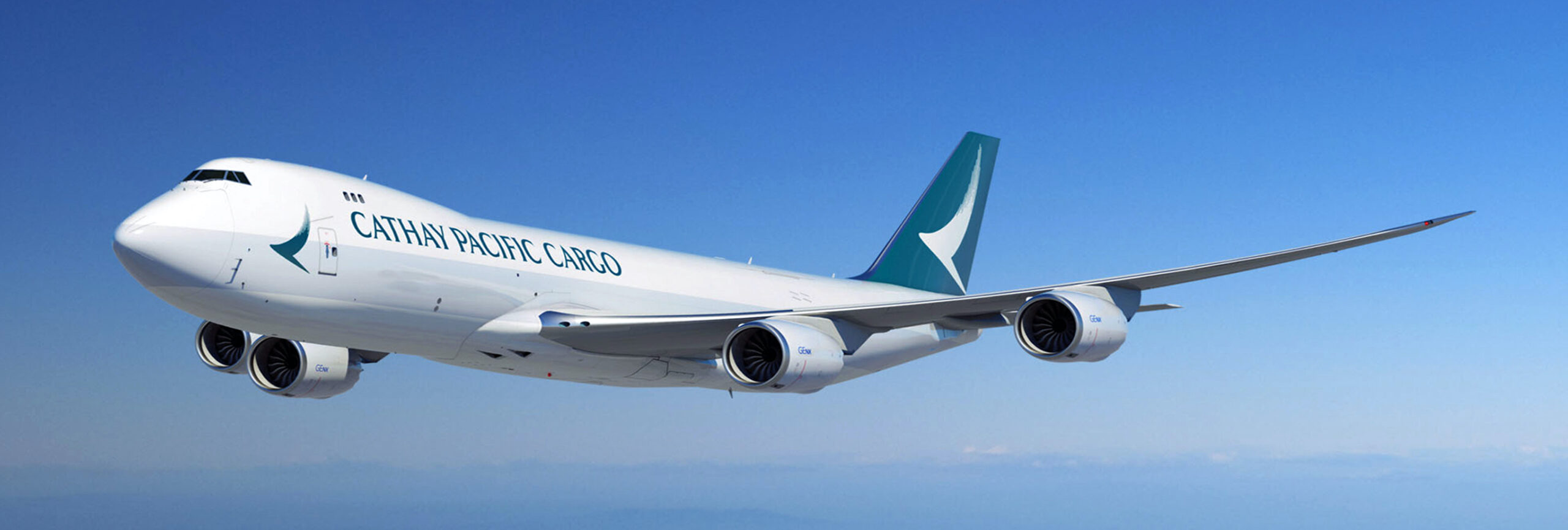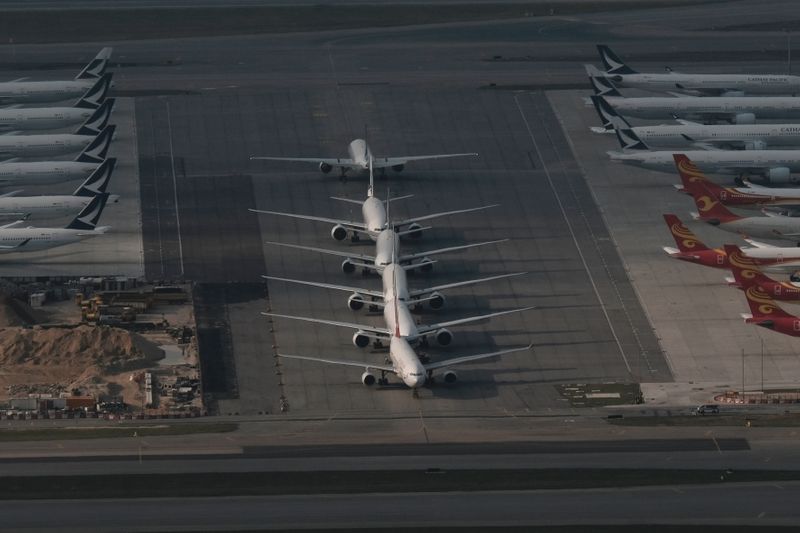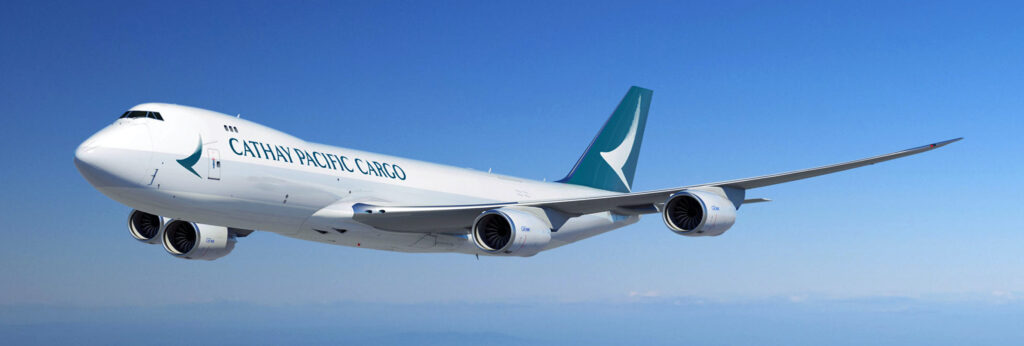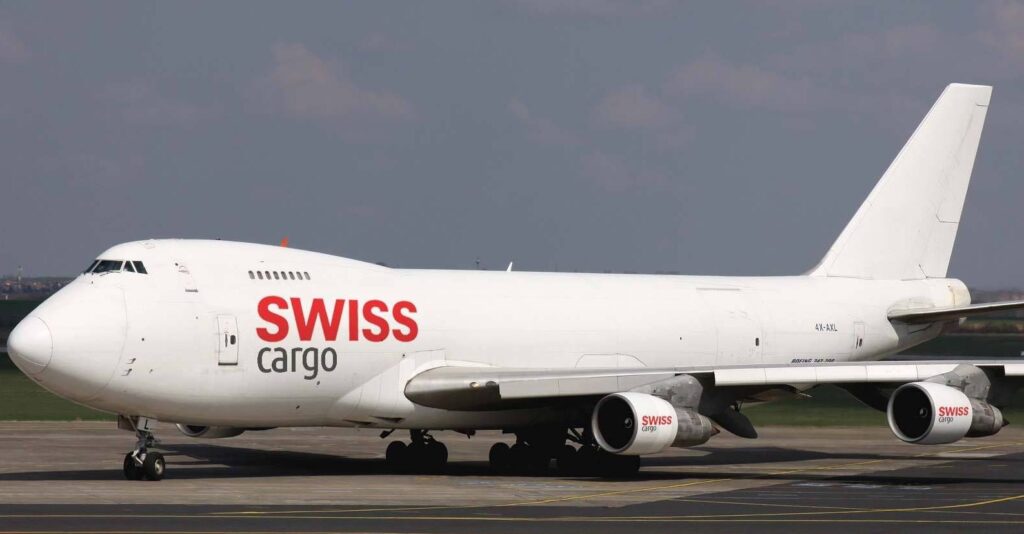– Financial results continue to be significantly impacted by COVID-19 and the 737 MAX grounding
– Proactively managing liquidity and transforming for the future
– Revenue of $14.1 billion, GAAP loss per share of ($0.79) and core (non-GAAP)* loss per share of ($1.39)
– Operating cash flow of ($4.8) billion; cash and marketable securities of $27.1 billion
– Total backlog of $393 billion, including more than 4,300 commercial airplanes
| Table 1. Summary Financial Results | Third Quarter | Nine Months | |||||||||
| (Dollars in Millions, except per share data) | 2020 | 2019 | Change | 2020 | 2019 | Change | |||||
| Revenues | $14,139 | $19,980 | (29)% | $42,854 | $58,648 | (27)% | |||||
| GAAP | |||||||||||
| (Loss)/Earnings From Operations | ($401) | $1,259 | NM | ($4,718) | $229 | NM | |||||
| Operating Margin | (2.8)% | 6.3% | NM | (11.0)% | 0.4% | NM | |||||
| Net (Loss)/Earnings | ($466) | $1,167 | NM | ($3,502) | $374 | NM | |||||
| (Loss)/Earnings Per Share | ($0.79) | $2.05 | NM | ($6.10) | $0.66 | NM | |||||
| Operating Cash Flow | ($4,819) | ($2,424) | NM | ($14,401) | ($226) | NM | |||||
| Non-GAAP* | |||||||||||
| Core Operating (Loss)/Earnings | ($754) | $895 | NM | ($5,773) | ($864) | NM | |||||
| Core Operating Margin | (5.3)% | 4.5% | NM | (13.5)% | (1.5)% | NM | |||||
| Core (Loss)/Earnings Per Share | ($1.39) | $1.45 | NM | ($7.88) | ($1.13) | NM |
| *Non-GAAP measure; complete definitions of Boeing’s non-GAAP measures are on page 5, “Non-GAAP Measures Disclosures.” |
The Boeing Company [NYSE: BA] reported third-quarter revenue of $14.1 billion, GAAP loss per share of ($0.79) and core loss per share (non-GAAP)* of ($1.39), reflecting lower commercial deliveries and services volume primarily due to COVID-19 (Table 1). Boeing recorded operating cash flow of ($4.8) billion.
“The global pandemic continued to add pressure to our business this quarter, and we’re aligning to this new reality by closely managing our liquidity and transforming our enterprise to be sharper, more resilient and more sustainable for the long term,” said Boeing President and Chief Executive Officer Dave Calhoun. “Our diverse portfolio, including our government services, defense and space programs, continues to provide some stability for us as we adapt and rebuild for the other side of the pandemic. We remain focused on the health and safety of our employees and their communities. I’m proud of the dedication and commitment our teams have demonstrated as they continued to deliver for our customers in this challenging environment. Despite the near-term headwinds, we remain confident in our long term future and are focused on sustaining critical investments in our business and the meaningful actions we are taking to strengthen our safety culture, improve transparency and rebuild trust.”
Following the lead of global regulators, Boeing made steady progress toward the safe return to service of the 737 MAX, including rigorous certification and validation flights conducted by the U.S. Federal Aviation Administration, Transport Canada and the European Union Aviation Safety Agency. The Joint Operational Evaluation Board, featuring civil aviation authorities from the United States, Canada, Brazil, and the European Union, also conducted its evaluations of updated crew training. The 737 MAX has now completed around 1,400 test and check flights and more than 3,000 flight hours as it progresses through the robust and comprehensive certification process.
To adapt to the market impacts of COVID-19 and position the company for the future, Boeing continued its business transformation across five key areas including its infrastructure footprint, overhead and organizational structure, portfolio and investment mix, supply chain health and operational excellence. As the company resizes its operations to align with market realities, Boeing expects to continue lowering overall staffing levels through natural attrition as well as voluntary and involuntary workforce reductions, and recorded additional severance costs in the third quarter.
| Table 2. Cash Flow | Third Quarter | Nine Months | |||||
| (Millions) | 2020 | 2019 | 2020 | 2019 | |||
| Operating Cash Flow | ($4,819) | ($2,424) | ($14,401) | ($226) | |||
| Less Additions to Property, Plant & Equipment | ($262) | ($465) | ($1,038) | ($1,387) | |||
| Free Cash Flow* | ($5,081) | ($2,889) | ($15,439) | ($1,613) |
| *Non-GAAP measure; complete definitions of Boeing’s non-GAAP measures are on page 5, “Non-GAAP Measures Disclosures.” |
Operating cash flow was ($4.8) billion in the quarter, reflecting lower commercial deliveries and services volume primarily due to COVID-19, as well as timing of receipts and expenditures (Table 2).
| Table 3. Cash, Marketable Securities and Debt Balances | Quarter-End | ||
| (Billions) | Q3 20 | Q2 20 | |
| Cash | $10.6 | $20.0 | |
| Marketable Securities1 | $16.5 | $12.4 | |
| Total | $27.1 | $32.4 | |
| Debt Balances: | |||
| The Boeing Company, net of intercompany loans to BCC | $59.1 | $59.5 | |
| Boeing Capital, including intercompany loans | $1.9 | $1.9 | |
| Total Consolidated Debt | $61.0 | $61.4 |
| 1 Marketable securities consists primarily of time deposits due within one year classified as “short-term investments.” |
Cash and investments in marketable securities decreased to $27.1 billion, compared to $32.4 billion at the beginning of the quarter, primarily driven by operating cash outflows (Table 3). Debt was $61.0 billion, down from $61.4 billion at the beginning of the quarter due to the repayment of maturing debt.
Total company backlog at quarter-end was $393 billion.
Segment Results
Commercial Airplanes
| Table 4. Commercial Airplanes | Third Quarter | Nine Months | |||||||||
| (Dollars in Millions) | 2020 | 2019 | Change | 2020 | 2019 | Change | |||||
| Commercial Airplanes Deliveries | 28 | 62 | (55)% | 98 | 301 | (67)% | |||||
| Revenues | $3,596 | $8,249 | (56)% | $11,434 | $24,793 | (54)% | |||||
| Loss from Operations | ($1,369) | ($40) | NM | ($6,199) | ($3,813) | NM | |||||
| Operating Margin | (38.1)% | (0.5)% | NM | (54.2)% | (15.4)% | NM |
Commercial Airplanes third-quarter revenue decreased to $3.6 billion, reflecting lower delivery volume primarily due to COVID-19 impacts as well as 787 quality issues and associated rework. Third-quarter operating margin decreased to (38.1) percent, primarily driven by lower delivery volume, as well as $590 million of abnormal production costs related to the 737 program.
Commercial Airplanes added the final 777X flight test airplane to the test program and the GE9X engine received FAA certification. In October, the company decided it will consolidate 787 production in South Carolina in mid-2021, which did not have a significant financial impact on the program in the third quarter. Commercial Airplanes delivered 28 airplanes during the quarter, and backlog included over 4,300 airplanes valued at $313 billion.
Defense, Space & Security
| Table 5. Defense, Space & Security | Third Quarter | Nine Months | |||||||||
| (Dollars in Millions) | 2020 | 2019 | Change | 2020 | 2019 | Change | |||||
| Revenues | $6,848 | $7,002 | (2)% | $19,478 | $20,168 | (3)% | |||||
| Earnings from Operations | $628 | $754 | (17)% | $1,037 | $2,581 | (60)% | |||||
| Operating Margin | 9.2% | 10.8% | (1.6) Pts | 5.3% | 12.8% | (7.5) Pts |
Defense, Space & Security third-quarter revenue decreased to $6.8 billion, primarily due to derivative aircraft award timing, partially offset by higher fighter volume (Table 5). Third-quarter operating margin decreased to 9.2 percent reflecting less favorable performance, including a $67 million KC-46A Tanker charge.
During the quarter, Defense, Space & Security received an award for eight F-15EX advanced fighter aircraft for the U.S. Air Force and a contract extension for the International Space Station for NASA, as well as contracts for nine additional MH-47G Block II Chinook helicopters for the U.S. Army Special Operations and four additional 702X satellites. Also in the quarter, the U.S. Air Force and Boeing team was awarded the Collier Trophy for aerospace excellence for the X-37B autonomous spaceplane. Significant milestones included inducting the 20th U.S. Navy F/A-18 into the Service Life Modification program as well as delivering the firstBell Boeing V-22 Osprey to Japan and the first MH-47G Block II Chinook to the U.S. Army Special Operations.
Backlog at Defense, Space & Security was $62 billion, of which 30 percent represents orders from customers outside the U.S.
Global Services
| Table 6. Global Services | Third Quarter | Nine Months | |||||||||
| (Dollars in Millions) | 2020 | 2019 | Change | 2020 | 2019 | Change | |||||
| Revenues | $3,694 | $4,658 | (21)% | $11,810 | $13,820 | (15)% | |||||
| Earnings from Operations | $271 | $673 | (60)% | $307 | $2,013 | (85%) | |||||
| Operating Margin | 7.3% | 14.4% | (7.1) Pts | 2.6% | 14.6% | (12.0) Pts |
Global Services third-quarter revenue decreased to $3.7 billion, driven by lower commercial services volume due to COVID-19, partially offset by higher government services volume (Table 6). Third-quarter operating margin decreased to 7.3 percent primarily due to lower commercial services volume and additional severance costs.
During the quarter, Global Services signed an agreement with GECAS for 11 737-800 Boeing Converted Freighters, secured a six-year P-8A support contract for the Royal Australian Air Force, and was awarded F-15EX training and services support contracts by the U.S. Air Force. Global Services also delivered the first P-8A Operational Flight Trainer for the United Kingdom Royal Air Force.
Additional Financial Information
| Table 7. Additional Financial Information | Third Quarter | Nine Months | |||||
| (Dollars in Millions) | 2020 | 2019 | 2020 | 2019 | |||
| Revenues | |||||||
| Boeing Capital | $71 | $66 | $205 | $207 | |||
| Unallocated items, eliminations and other | ($70) | $5 | ($73) | ($340) | |||
| Earnings from Operations | |||||||
| Boeing Capital | $30 | $29 | $47 | $86 | |||
| FAS/CAS service cost adjustment | $353 | $364 | $1,055 | $1,093 | |||
| Other unallocated items and eliminations | ($314) | ($521) | ($965) | ($1,731) | |||
| Other income, net | $119 | $121 | $325 | $334 | |||
| Interest and debt expense | ($643) | ($203) | ($1,458) | ($480) | |||
| Effective tax rate | 49.6% | 0.8% | 40.1% | (350.6)% |
At quarter-end, Boeing Capital’s net portfolio balance was $2.0 billion. The change in revenue and earnings from other unallocated items and eliminations was primarily due to the timing of cost allocations. Earnings from other unallocated items and eliminations was also impacted by lower enterprise research and development expense. Interest and debt expense increased due to higher debt balances. The third quarter effective tax rate reflects tax benefits related to the five year net operating loss carryback provision in the Coronavirus Aid, Relief, and Economic Security (CARES) Act as well as the impact of pre-tax losses.
Non-GAAP Measures Disclosures
We supplement the reporting of our financial information determined under Generally Accepted Accounting Principles in the United States of America (GAAP) with certain non-GAAP financial information. The non-GAAP financial information presented excludes certain significant items that may not be indicative of, or are unrelated to, results from our ongoing business operations. We believe that these non-GAAP measures provide investors with additional insight into the company’s ongoing business performance. These non-GAAP measures should not be considered in isolation or as a substitute for the related GAAP measures, and other companies may define such measures differently. We encourage investors to review our financial statements and publicly-filed reports in their entirety and not to rely on any single financial measure. The following definitions are provided:
Core Operating Earnings, Core Operating Margin and Core Earnings Per Share
Core operating earnings is defined as GAAP earnings from operations excluding the FAS/CAS service cost adjustment. The FAS/CAS service cost adjustment represents the difference between the FAS pension and postretirement service costs calculated under GAAP and costs allocated to the business segments. Core operating margin is defined as core operating earnings expressed as a percentage of revenue. Core earnings per share is defined as GAAP diluted earnings per share excluding the net earnings per share impact of the FAS/CAS service cost adjustment and Non-operating pension and postretirement expenses. Non-operating pension and postretirement expenses represent the components of net periodic benefit costs other than service cost. Pension costs, comprising service and prior service costs computed in accordance with GAAP are allocated to Commercial Airplanes and BGS businesses supporting commercial customers. Pension costs allocated to BDS and BGS businesses supporting government customers are computed in accordance with U.S. Government Cost Accounting Standards (CAS), which employ different actuarial assumptions and accounting conventions than GAAP. CAS costs are allocable to government contracts. Other postretirement benefit costs are allocated to all business segments based on CAS, which is generally based on benefits paid. Management uses core operating earnings, core operating margin and core earnings per share for purposes of evaluating and forecasting underlying business performance. Management believes these core earnings measures provide investors additional insights into operational performance as they exclude non-service pension and post-retirement costs, which primarily represent costs driven by market factors and costs not allocable to government contracts. A reconciliation between the GAAP and non-GAAP measures is provided on pages 12-13.
Free Cash Flow
Free cash flow is GAAP operating cash flow reduced by capital expenditures for property, plant and equipment. Management believes free cash flow provides investors with an important perspective on the cash available for shareholders, debt repayment, and acquisitions after making the capital investments required to support ongoing business operations and long term value creation. Free cash flow does not represent the residual cash flow available for discretionary expenditures as it excludes certain mandatory expenditures such as repayment of maturing debt. Management uses free cash flow as a measure to assess both business performance and overall liquidity. Table 2 provides a reconciliation of free cash flow to GAAP operating cash flow.
Caution Concerning Forward-Looking Statements
This press release contains “forward-looking statements” within the meaning of the Private Securities Litigation Reform Act of 1995. Words such as “may,” “should,” “expects,” “intends,” “projects,” “plans,” “believes,” “estimates,” “targets,” “anticipates,” and similar expressions generally identify these forward-looking statements. Examples of forward-looking statements include statements relating to our future financial condition and operating results, as well as any other statement that does not directly relate to any historical or current fact. Forward-looking statements are based on expectations and assumptions that we believe to be reasonable when made, but that may not prove to be accurate. These statements are not guarantees and are subject to risks, uncertainties, and changes in circumstances that are difficult to predict. Many factors could cause actual results to differ materially and adversely from these forward-looking statements. Among these factors are risks related to: (1) the COVID-19 pandemic and related government actions, including with respect to our operations, our liquidity, the health of our customers and suppliers, and future demand for our products and services; (2) the 737 MAX, including the timing and conditions of 737 MAX regulatory approvals, lower than planned production rates and/or delivery rates, and increased considerations to customers and suppliers, (3) general conditions in the economy and our industry, including those due to regulatory changes; (4) our reliance on our commercial airline customers; (5) the overall health of our aircraft production system, planned commercial aircraft production rate changes, our commercial development and derivative aircraft programs, and our aircraft being subject to stringent performance and reliability standards; (6) changing budget and appropriation levels and acquisition priorities of the U.S. government; (7) our dependence on U.S. government contracts; (8) our reliance on fixed-price contracts; (9) our reliance on cost-type contracts; (10) uncertainties concerning contracts that include in-orbit incentive payments; (11) our dependence on our subcontractors and suppliers, as well as the availability of raw materials; (12) changes in accounting estimates; (13) changes in the competitive landscape in our markets; (14) our non-U.S. operations, including sales to non-U.S. customers; (15) threats to the security of our or our customers’ information; (16) potential adverse developments in new or pending litigation and/or government investigations; (17) customer and aircraft concentration in our customer financing portfolio; (18) changes in our ability to obtain debt financing on commercially reasonable terms and at competitive rates; (19) realizing the anticipated benefits of mergers, acquisitions, joint ventures/strategic alliances or divestitures; (20) the adequacy of our insurance coverage to cover significant risk exposures; (21) potential business disruptions, including those related to physical security threats, information technology or cyber-attacks, epidemics, sanctions or natural disasters; (22) work stoppages or other labor disruptions; (23) substantial pension and other postretirement benefit obligations; and (24) potential environmental liabilities.
Additional information concerning these and other factors can be found in our filings with the Securities and Exchange Commission, including our most recent Annual Report on Form 10-K, Quarterly Reports on Form 10-Q and Current Reports on Form 8-K. Any forward-looking statement speaks only as of the date on which it is made, and we assume no obligation to update or revise any forward-looking statement, whether as a result of new information, future events, or otherwise, except as required by law.
